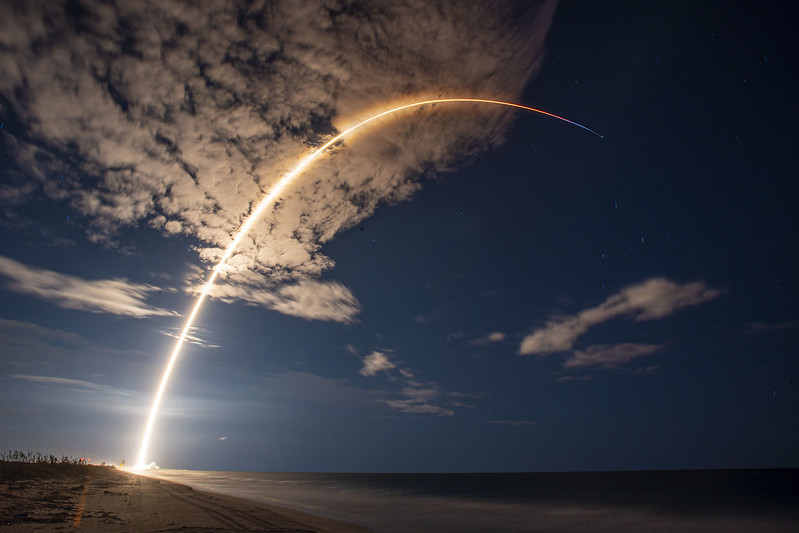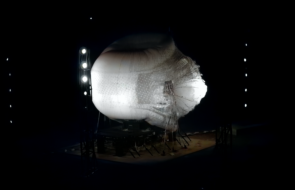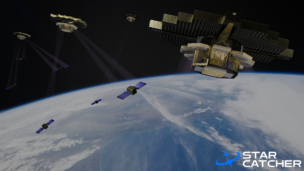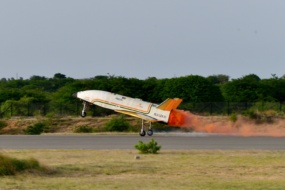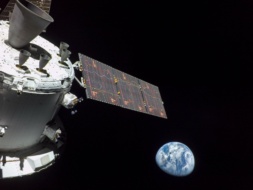Time just flies by in the space industry, and we’ve already arrived at the end of the third quarter of 2022. It was a busy quarter, full of major partnership announcements, strides in science, and a jam-packed conference season. Here are the highlights from the last three months in commercial, military, and civil space.
July
In mid-July, NASA released the first images from JWST to the public: first the deep field in a surprise White House announcement, then the telescope’s first four science images. Since then, JWST has been cranking out images of distant galaxies and nearby planets.
Later in the month, the Avio-built Vega C rocket made a successful maiden flight, delivering a handful of small payloads to orbit. Isar Aerospace became the first privately funded operator to gain access to the French Guiana spaceport. China launched the Wentian module of its Tiangong (or “Heavenly Palace”) space station, the largest single module ever sent to orbit. OneWeb and Eutelsat confirmed that they were in merger talks. Starlink filed an application to provide mobile service, much to Dish’s chagrin.
Meanwhile, the war in Ukraine continued on. Dmitry Rogozin was removed from his post as head of Roscosmos and replaced by Yuri Borisov, who was previously the deputy prime minister for defense and space. Roscosmos also announced that it plans to begin constructing its own space station by 2024, eventually leaving the ISS partnership.
Payload’s funding coverage: Stellar Ventures closed $23M in committed capital for SV Andromeda Fund LP, its first fund. The UAE created an AED 3 billion (~$817M) national fund to develop the country’s budding space industry.
August
As the month kicked off, the White House released a 44-point orbital debris implementation plan. NASA updated its requirements for private astronaut missions to the ISS, mandating that a former NASA astronaut has to accompany these missions. ESA began preliminary talks with SpaceX to launch satellites that were stranded by the loss of access to Soyuz. And the Artemis I launch, originally targeted for Aug. 29, slipped. Spoiler alert: It slipped again.
On the commercial side, Firefly Aerospace made a slew of new executive leadership hires. Intelsat and SES revealed they were in merger talks. The FCC struck down SpaceX’s bid for $866M in subsidies to roll out Starlink in the rural US. Orbital Reef passed a NASA system definition review and entered the design phase. Kicking off a slew of satellite-to-smartphone headlines, SpaceX and T-Mobile said they’d formed a technology partnership.
Payload’s funding coverage: Slingshot Aerospace acquired Numerica’s Space Domain Awareness (SDA) division and UK-based Seradata; Xona Space Systems raised a ~$15M funding round; and Atlas Space Operations raised a $26M Series B.
September
Last month, the FCC announced it was considering shortening the post-mission deorbit deadline to five years—then, last week, followed through on that plan. The National Space Council met for the second time under the Biden administration. The Senate introduced the ORBITS Act, aimed at developing active debris removal technology.
Intuitive Machines announced plans to go public via SPAC merger with Inflection Point Acquisition Corp ($IPAX). ArianeGroup execs unveiled the Smart Upper Stage for Innovative Exploration (SUSIE) spacecraft concept. Planet ($PL) announced its hyperspectral constellation, Tanager. Starburst Ventures opened an early-stage fund.
To round out the month, NASA crashed the Double Asteroid Redirection Test (DART) into the asteroid Dimorphos, demonstrating planetary defense by kinetic impact for the first time.
Payload’s funding coverage: Skyroot Aerospace raised $51M in Series B funding, Albedo raised a $48M Series A, Countdown Capital closed a $15M Fund II, and SkyFi topped off its seed round and launched its app in beta.
